Following the request from the Guatemalan Ministry of Education (MINEDUC), Enfants du Monde is displaying its bilingual and intercultural education in Guatemala considering the country’s linguistic characteristics and ethnicities. Indeed, more than 40% of the Guatemalan population belong to one of the Mayas’ ethnic groups. This project is funded by the Swiss Agency for Development and Cooperation.
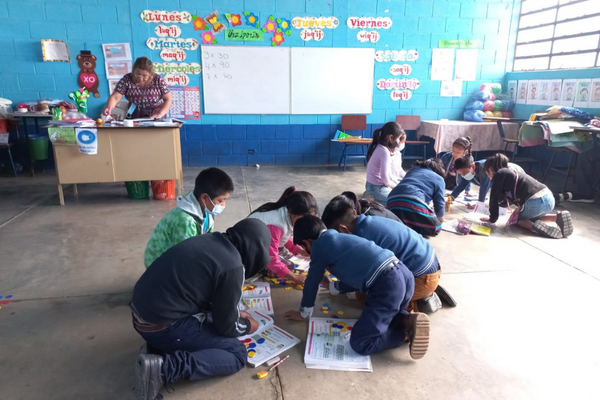 A programme in the Mayan language Kaqchikel and in Spanish to take into account the linguistic characteristics of the children.
A programme in the Mayan language Kaqchikel and in Spanish to take into account the linguistic characteristics of the children.
School equipment adapted to the children’s daily life, in Spanish and in the Mayan language
Despite the Ministry of Education’s efforts to promote education in the children’s mother tongue, one Guatemalan out of five cannot read or write. Only 3% of students in the country say they have learned to read and write in a different language than Spanish when many of them do not speak it at home. In addition to the language problem, the low level of teacher training is also linked to the national performance.
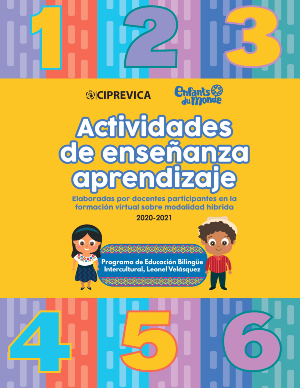
To improve the situation, Enfants du Monde trains specialists who will then accompany pedagogically some teachers and trainers. Our teams develop, with local actors, educational material rooted in the children’s daily culture and environment. Offering both in Spanish and in the local Mayan language, bilingual didactic materials contributing to the implementation of a relevant teaching - culturally and linguistically - and facilitating the assimilation of subjects.
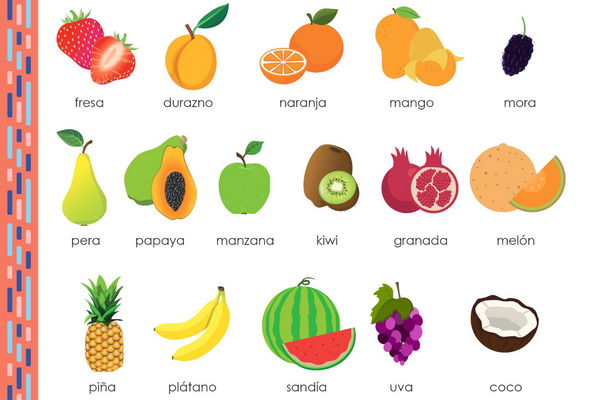
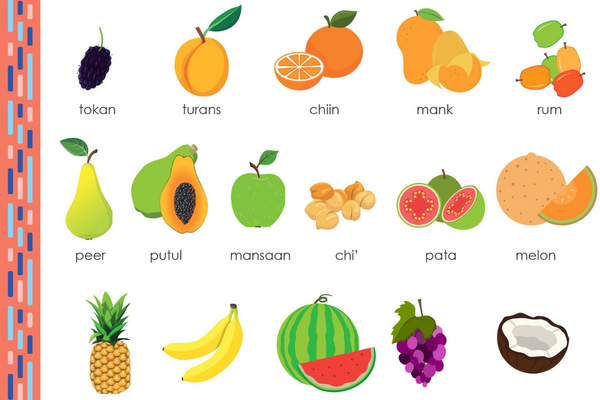
The programme impacted by the health crisis
The implementation and maintenance of the bilingual and intercultural education programme was not easy to organise during the health crisis because students have been going to school intermittently for two years. Enfants du Monde has trained teachers remotely and strengthened their ability to teach their classes in virtual or hybrid mode. At the Ministry request, we have also supported the development of self-study materials for students to use at home and educational radio programs. As many interesting approaches to pursue and propose in regions where access to school is limited.
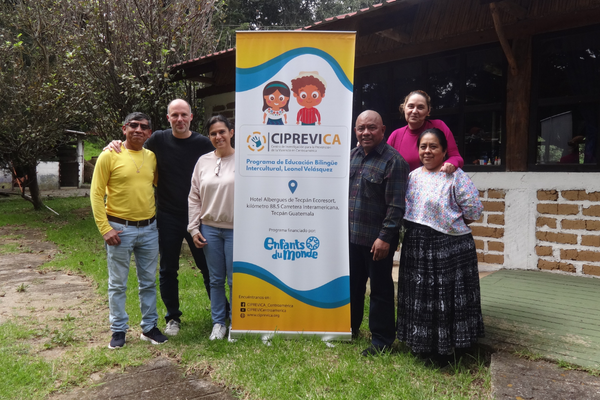 Pedro Morejon - local trainer, department of Chimalternango / Mathieu Savoy - pedagogical collaborator, Enfants du Monde / Martha Celia Sandoval - one of the 2 pedagogical coordinators of the programme / Hector Mó - local trainer, department of Alta Verapaz / Maria Balaguer - Enfants du Monde programme officer, regional coordination office in Latin America / Floricelda Saquil - local trainer, department of Alta Verapaz
Pedro Morejon - local trainer, department of Chimalternango / Mathieu Savoy - pedagogical collaborator, Enfants du Monde / Martha Celia Sandoval - one of the 2 pedagogical coordinators of the programme / Hector Mó - local trainer, department of Alta Verapaz / Maria Balaguer - Enfants du Monde programme officer, regional coordination office in Latin America / Floricelda Saquil - local trainer, department of Alta Verapaz
A first quantitative assessment of the programme
Mathieu, pedagogical collaborator of Enfants du Monde’s programmes, knows the country well, its culture, its populations. For several years, he has collaborated within the programme and today works in partnership with CIPREVICA (Research Centre for the violence prevention in Central America). Last week, he carried out a qualitative follow-up visit to the bilingual and intercultural educational programme with teachers and classes in the Department of Chimaltenango. This region, where most of the inhabitants are descendants of the Kaqchikel Mayas, is located in the South of the capital Guatemala City.
The challenge of Mathieu’s mission especially relies in providing technical support to the CIPREVICA pedagogical team for the realization of the qualitative monitoring of teaching and learning in a sample of schools and with regards to the quality principles led by Enfants du Monde in all its educational programmes.
« The purpose of this first follow-up is to better understand the realities in the schools in connection with the bilingual and intercultural education programme and to estimate its effects on education practices. This diagnosis will establish a first milestone that will enable to follow the evolution of teaching practices over time. This first assessment will enable to make changes in the design of training and teaching materials to benefit all schools in the programme’s intervention areas, or even more widely in the rest of the country. » Mathieu, pedagogical collaborator of Enfants du Monde.
